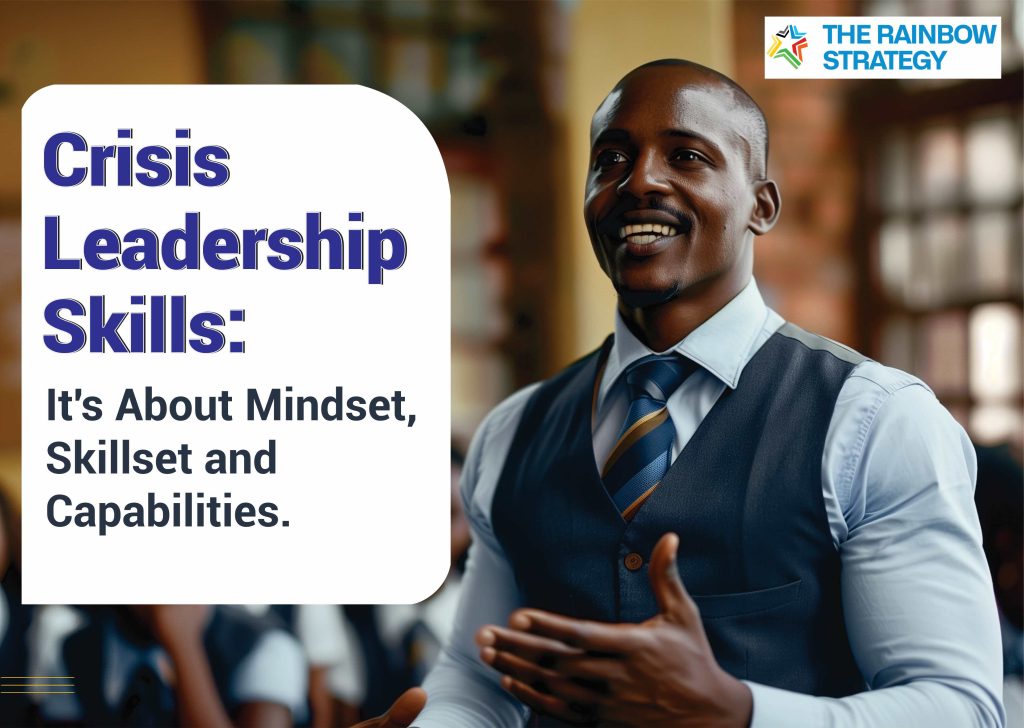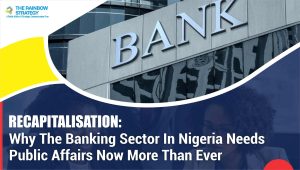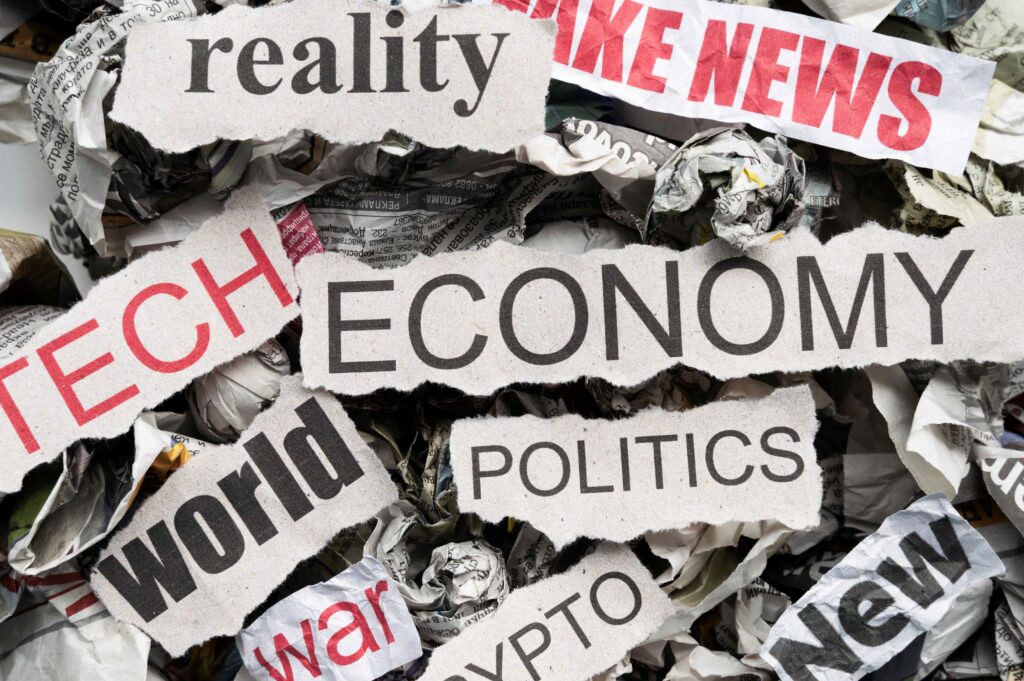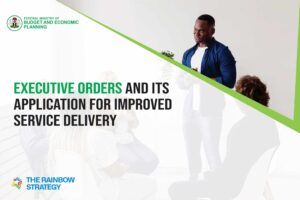Navigating today’s VUCA environment requires leaders to go beyond traditional management skills. Effective leaders must possess a unique combination of mindset, skillset, and capabilities that could enable them to turn challenges into opportunities for sustainable growth, connection, and positive impact.
- Mindset: The Foundation of Crisis Leadership
Effective leaders must possess a resilient, adaptive mindset, and be focused on long-term value.
From our research and insights, this mindset should comprise several key components which include:
- Growth Orientation: Leaders must embrace challenges as opportunities for learning and development. They should view crises as catalysts for transformation, enabling them to pivot and adapt strategies in real time.
- Empathy and Emotional Intelligence: Understanding the human aspect of crises is crucial. Leaders who exhibit empathy can better connect with stakeholders, foster trust, and build a supportive environment, crucial for navigating uncertainty.
- Decisive Under Pressure: Crises often demand quick decision-making with limited information. Effective leaders demonstrate decisiveness and courage, balancing urgency with the need for careful deliberation.
- Open to Innovation: Leaders should be open to new ideas and approaches, recognising that traditional solutions may not suffice. This mindset enables them to leverage technological advances, diverse perspectives, and creative problem-solving to address complex issues.
- Integrity and Authenticity: Maintaining credibility is paramount. Leaders who consistently act with integrity and transparency build stronger relationships and trust with employees, customers, and other stakeholders.
- Skillset: The Tools for Effective Crisis Leadership
In addition to a strong mindset, effective leaders need a diverse set of skills to manage crises effectively. The key skills include:
- Strategic Foresight and Scenario Planning: Anticipating potential risks and preparing for various outcomes is critical. Leaders who are adept at scenario planning can better navigate uncertainty and create strategies that are resilient to various future shocks.
- Communication and Storytelling: Clear, concise, and transparent communication is essential in times of crisis. Effective leaders are skilled in conveying complex information in a way that is relatable and actionable. They use storytelling to connect with stakeholders emotionally and build a shared sense of purpose.
- Stakeholder Engagement and Collaboration: Leaders must engage a wide range of stakeholders, from employees to customers to regulators, ensuring alignment and building coalitions of support. Collaborative leadership, which involves listening to diverse voices and building consensus, is critical for effective crisis management.
- Agility and Adaptive Problem-Solving: In a rapidly changing environment, leaders need to be agile and able to adapt their strategies quickly. They must possess strong problem-solving skills, enabling them to identify root causes, evaluate options, and implement solutions efficiently.
- Financial Acumen and Risk Management: Understanding the financial implications of decisions is crucial. Effective leaders are skilled at managing resources wisely, mitigating risks, and identifying opportunities to create value even in challenging situations.
- Capabilities: The Execution of Effective Crisis Leadership
Beyond mindset and skills, effective leaders must also demonstrate specific capabilities to successfully navigate crises:
- Crisis Management and Resilience Building: Leaders need to establish robust crisis management frameworks that include crisis communication plans, business continuity strategies, and resilience-building initiatives. This involves not only preparing for the crisis but also ensuring the organization emerges stronger.
- Change Leadership and Culture Building: Driving change in response to a crisis requires leaders to be adept at guiding organizations through transition. This includes fostering a culture of agility, innovation, and resilience, where employees are empowered to take initiative and drive positive change.
- Empowering and Mobilizing Teams: Effective leaders are capable of rallying teams around a shared vision. They provide clarity, direction, and motivation, enabling teams to perform at their best, especially under pressure. Empowering others to lead and make decisions at various levels enhances organizational responsiveness.
- Leveraging Technology and Data Analytics: In an increasingly digital world, leaders must leverage technology and data to make informed decisions. This capability includes using predictive analytics for risk assessment, employing digital communication tools to maintain stakeholder engagement, and deploying digital platforms for agile decision-making.
- Sustainability and Ethical Leadership: Addressing crises, especially those related to social justice, environmental sustainability, or economic disparities, requires leaders to prioritise ethical considerations. They need to balance short-term demands with long-term societal impacts, demonstrating a commitment to responsible leadership.
- Putting It All Together: The Holistic Crisis Leader
The most effective crisis leaders are those who can integrate mindset, skillset, and capabilities into a cohesive approach to leadership. They recognise that:
- Resilience is Built, Not Granted: Effective leaders invest in building a resilient organisation by developing robust systems, processes, and cultures that can withstand shocks and adapt quickly.
- Communication is a Strategic Asset: Leaders leverage communication not just to disseminate information but to build trust, maintain morale, and drive alignment across diverse stakeholder groups.
- Leadership is a Shared Responsibility: Empowering others to lead and encouraging distributed decision-making allows for more nimble and responsive crisis management.
- Innovation is Non-Negotiable: Leaders must continuously innovate not only in products and services but also in how they manage crises, engage stakeholders, and sustain organizational growth.
- Purpose Drives Performance: Anchoring leadership in a clear sense of purpose enables organizations to remain focused and motivated, especially when navigating turbulent waters.
Conclusion

In today’s rapidly evolving world, the ability to lead through a crisis is not just about managing the present but shaping the future. Effective leaders distinguish themselves by combining a resilient mindset, an agile skillset, and comprehensive capabilities that not only address immediate challenges but also create lasting value and impact. By fostering an environment that prioritizes growth, innovation, and ethical leadership, they turn crises into opportunities for transformation and positive change.








